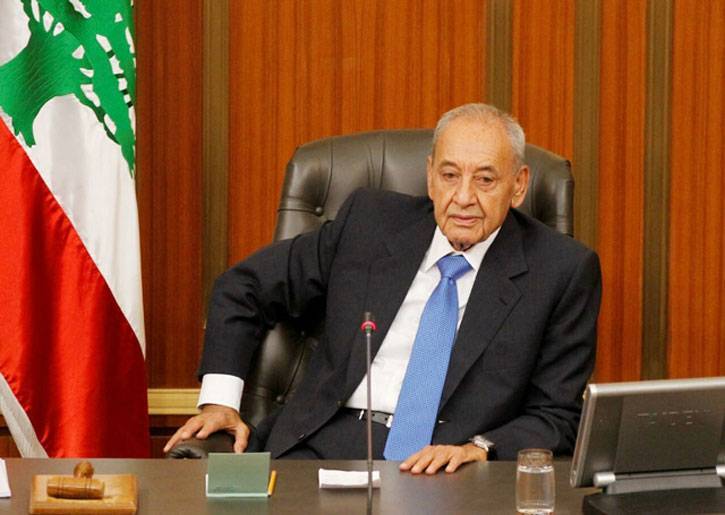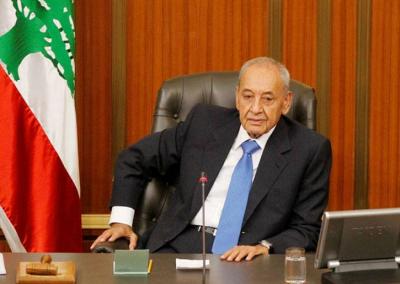There is no qualitative breakthrough in the first presidential wall. Qatari envoy Jassim bin Fahd Al Thani is moving between the relevant political forces in an attempt to prove his success where the French have failed, even though former French Foreign Minister Jean-Yves Le Drian is set to return to Beirut, hoping to find any change in the political data that could end the vacancy at the palace. The political forces do not underestimate the Qatari attempt to achieve the presidency, considering the tools at their disposal and the open lines available to them, which are not accessible to the French administration, despite some believing that Qatari progress could be halted at any moment by a Saudi intervention if Doha "went too far" in its aspirations and approached the Lebanese file from its deep roots, getting close to the system and its complexities.
Some stakeholders confirm that Qatari-Saudi-American coordination is ongoing and meticulous, especially since Riyadh shows no interest in engaging in the Lebanese quagmire, but will certainly not allow the presidential process to unfold in a way that contradicts its interests. Hence, the task is entrusted to the Qataris, who are negotiating with all concerned parties under American-Saudi considerations.
Consequently, it is believed that the Qataris did not jump into the Lebanese scene without understanding its complexities and labyrinths, aiming to return empty-handed, even if it takes them one or two more attempts. In the end, they know how to target the Lebanese shoulder and when to do so. Thus, they are working patiently and away from the limelight, waiting for the situation to mature regionally or locally. So far, both tracks remain immature. Nonetheless, the Qataris have transitioned from the phase of gauging the pulse to seriously searching for a third name, making offers. The negotiations of 2008 in Doha are a vivid testimony to the quality of the offers that Qatar can provide.
However, Qatari involvement in the depths of the crisis does not mean that Doha has succeeded in achieving a qualitative advance, as the Shiite duo still remains in the first square: "Suleiman Frangieh is our candidate, period." The title of this steadfastness is loyalty and commitment to the promise made by House Speaker Nabih Berri and "Hezbollah" to the leader of the "Mardas Movement." In truth, the matter is deeper and more complicated, especially concerning "Hezbollah."
According to some stakeholders, the "party" still relies on time. As previously done in earlier stages, the prevailing belief among its officials is that time may turn the tables, especially given the rapid changes in the region that could restore its sway over the presidential file. Therefore, the door to negotiations on Frangieh's name is closed, and they wait. Others believe that linking the Lebanese file to regional issues, particularly from the Iranian side, puts the presidential accomplishment at the mercy of other tracks. Thus, the presidency remains in a state of waiting, and Frangieh's nomination is the "lock."
In any case, there are no present indicators suggesting that "the party" will abandon Frangieh in the foreseeable future. However, on Speaker Berri's side, the considerations are entirely different, to the extent that some say that the Speaker was close to achieving a solution a few weeks ago, involving a third-category president, arguing that the balance of power in parliament determined the results.
Informed sources confirm that the Speaker has told several friends he met recently that he was serious in his call for a dialogue that would open the doors of parliament for an open session, supposed to lead to the election of a president. He even said verbatim to these friends when asked if the dialogue could lead to the election of a third candidate: "Of course, otherwise what's the point of the dialogue?"
Yet, it seems, according to these sources, that Berri, after "Hezbollah" reasserted its political alignment behind Frangieh, has stepped back a bit to consider his ally's interests, especially since the reactions from Christian forces have undermined his dialogue project, relieving him of the burden of engineering a resolution. He was probably waiting for a response from Christians so he could wash his hands of it. But how long will this last? There is no clear answer.
It is confirmed that Berri could regain his initiative at any moment, especially since some Lebanese have reported that American officials have asserted that Berri is hiding something and could pull a presidential rabbit from his hat soon.
In any case, Suleiman Frangieh observes developments, particularly from the Qatari side, with a great deal of realism. He realizes that his presidential battle has become very difficult, but not impossible in his view. As long as the duo, particularly "Hezbollah," is committed to him, there is no need to take any step backward, meaning no withdrawal. Relying on the factor of time might work, as long as the internal situation is under control. But what if things spiral out of control? There is no answer from any of the stakeholders.
Thus, Frangieh relies on the duo's commitment, which still stands by its word. However, the project of an understanding with "the Free Patriotic Movement" leader Gebran Bassil is akin to drilling through a mountain with a needle. Frangieh admits that personal factors play a crucial role in the veto raised by Bassil against him as well as against Army Commander Joseph Aoun, to the extent that the "Movement" leader is ready to vote for any Maronite, except for these two names.
The committee tasked with studying the administrative decentralization project has held four meetings thus far, with further technical details to come. Meanwhile, the committee intended to study the trust fund project has not yet been established.
So, the internal track is closed. The external route is not available. Will "Hezbollah" pay the price for handing over the presidency to a third candidate, or will it remain in the corner of waiting to settle the cost of Frangieh?




